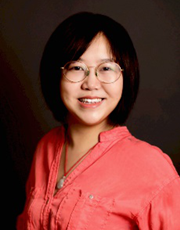副教授/副研究员/青年研究员/高级工程师





2020-至今,复旦大学,材料科学系,青年研究员
2018-2020,美国西北大学,生物集成电子中心,博士后
2012-2018,美国斯坦福大学,材料科学与工程系,博士
2008-2012,浙江大学,化学系,本科
柔性电子器件
锂/钠二次电池
2017年国家优秀自费留学生奖学金
2017年美国材料学会(MRS)杰出研究生奖
W. Sun#, J. Hou#*, G. Zhou*, J. Zhao*, et al. Amorphous FeSnOx nanosheets with hierarchical vacancies for room-temperature sodium-sulfur batteries. Angew. Chem. Int. Ed. e202404816 (2024). (Cover Article)
Z. Hu,J. Zhao*, J. A. Rogers*, et al. Ultrathin, transferred layers of silicon oxynitrides as tunable biofluid barriers for bioresorbable electronic systems. Adv. Mater. 36, 2307782 (2024).
Z. Wen, J. Lin, Q. Yuan, M. Guo, J. Hou, Y. Liu and J. Zhao*, Innovative strategies toward compact, highly stretchable, and fully transient primary batteries with enhanced electrical output for wearable electronics. Adv. Sustain. Syst. 2400259 (2024). (Invited)
J. Zhao#, H. Guo#, J. A. Rogers*, et al. “Body-interfaced chemical sensors for noninvasive monitoring and analysis of biofluids”, Trends Chem. 1, 6 (2019). (Cover Article)
J. Li#, J. Zhao#, and J. A. Rogers*, “Materials and designs for power supply systems in skin-interfaced electronics”.Acc. Chem. Res. 52, 53 (2018).
J. Zhao#, G. Zhou#, H.-M. Cheng, Y. Cui*, et al.“Air-stable and freestanding lithium alloy/graphene foil as an alternative to lithium metal anodes”, Nat. Nanotech.12, 993 (2017).
J. Zhao#, L. Liao#, Z. Bao, Y. Cui*, et al. “Surface fluorination of reactive battery anode materials for enhanced stability”, J. Am. Chem. Soc. 139, 11550 (2017).
J. Zhao, H.-W. Lee, Y. Cui*, et al. “Metallurgically lithiated SiOx anode with high capacity and ambient air compatibility”, Proc. Natl. Acad. Sci.113, 7408(2016).
J. Zhao, Z. Lu, Y. Cui*, et al. “Artificial solid electrolyte interphase-protected LixSi nanoparticles: an efficient and stable prelithiation reagent for lithium-ion batteries”, J. Am. Chem. Soc. 137, 8372 (2015). (Selected as JACS Spotlight)
J. Zhao, Z. Lu, Y. Cui*, et al. “Dry-air-stable lithium silicide-lithium oxide core-shell nanoparticles as high-capacity prelithiation reagents”, Nat. Commun. 5, 5088 (2014). (U.S. DRIVE Highlights of Technical Accomplishments, 2015)
备注:欢迎材料、化学、物理、生物、电子相关专业背景的学生报考本课题组硕士或博士研究生;欢迎相关研究领域的博士加盟本课题组进行博士后合作研究。